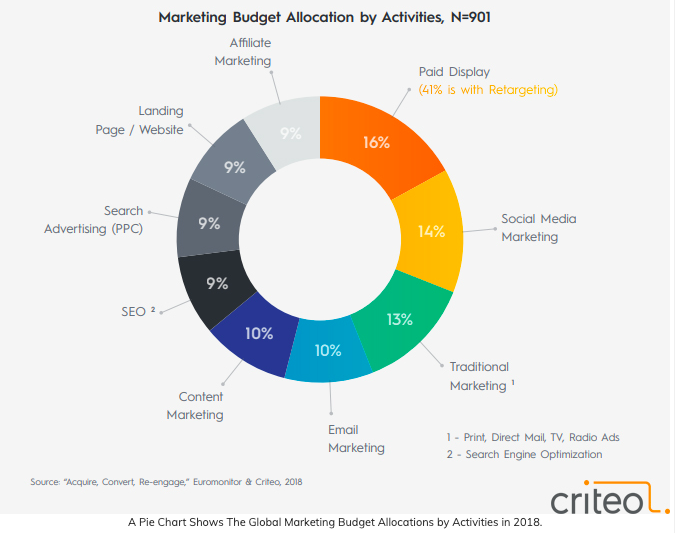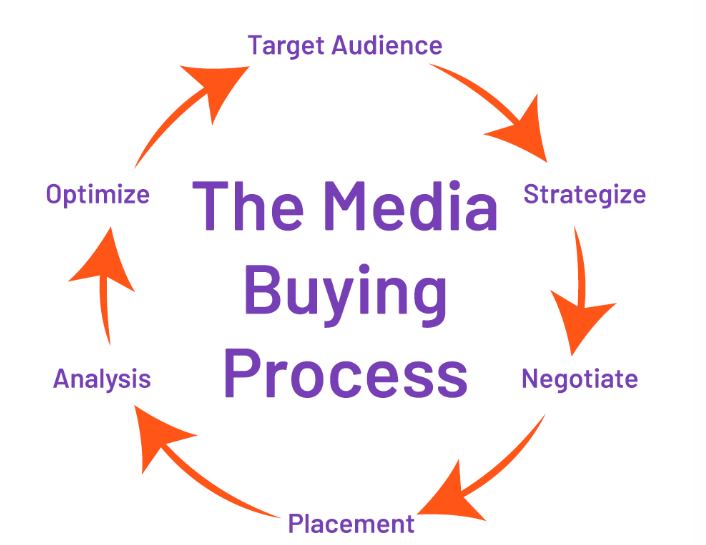As an advertiser, you can purchase a spot to publish your materials at a specific time or space by talking directly with the channel or outlet.
Media buying should be a significant part of your advertising strategy since it can magnify your investment and maximize the impact of your campaign. Even if you have no deep understanding of how advertising works, you still have an idea that primetime spots command premium prices.
Have you ever wondered how companies choose a primetime spot or even the radio or TV station where they will place their ad? Truth is, they don’t. These companies have hired experts who crunch the numbers and pore over all the data to find that sweet spot to generate action at the least cost.
In marketing parlance, this is called cost per action. And you want to keep the amount as low as possible to trigger a positive response from the audience.
It’s even more crucial nowadays with the sea of platforms to place your advertisements. Aside from traditional channels, such as TV, radio, billboards, newspapers, and magazines, you also have digital platforms like websites, social media, online forums, search engines, and emails.
But one rookie mistake of companies is considering traditional and digital platforms as mutually exclusive where they must choose one or the other.
In fact, blending platforms—such as Google display advertising running in tandem with a TV spot—can drive amazing results.
You can buy media through the following methods:
As an advertiser, you can purchase a spot to publish your materials at a specific time or space by talking directly with the channel or outlet.
In this method, you will bid for ad space through supply-side and demand-side platforms. However, prepare to engage in a bidding war with other advertisers for a prime spot.
Programmatic media buying involves automating the entire process of purchasing digital space. It involves combining algorithms and big data to deliver ads to the target audience at the right moment.
Here are some arguments that justify hiring a media buyer to handle your digital or traditional advertising campaign.
At the start of the budget cycle, you only allocate a percentage of your capital on marketing without any detailed plan. As a result, you have already run out of money midway through the year, forcing you to stop advertising spending.
In contrast, media planning is a crucial component of media buying. It serves as a blueprint to ensure you do not go rogue from the original strategy. With a media plan, you are not shooting blindly as you spend recklessly, praying your investment will yield returns.

Media buyers utilize real-time analytics, so you start your media buying journey with a map in hand to ensure that you are on the right track. The insights gained from mining data allow you to identify your target audience, determine their pain points, and establish their tendencies and buying behavior to reduce the risks of wasting your advertising investment.
More importantly, media buyers also perform metrics to track impressions. This way, they can shift strategies for underperforming or non-performing ads. For example, they can decide whether to boost these ads or design another campaign using your input.
As you can see, you don’t have to continue placing advertisements on one channel that do not deliver the type of numbers you want. Instead, you can funnel your resources to other areas that bring the highest returns.
When you work with a media buying agency, you essentially bring in expert negotiators who know their craft. You cannot be bullied into accepting the first offer from the publisher or media outlet to buy advertising spots. For instance, the marketing executive will give you 5% off their original advertising rates, and you would be very grateful for the gesture that you close the deal immediately.
However, there are several ways to skin the cat, as they say. First, if that’s the bottom price the agency can give you, the media buyer can negotiate for other add-ons that eventually sweeten the deal.
The media buyer can convince the publisher to give you one extra day of running your ad before taking it down. You may also get a free press release on a prime spot, which provides you with more mileage.
Media buying agencies are adept at ad placements and timing. Here are some foods for thought to consider:
The media buyer will help answer these questions and design a plan around them. Media buying starts and ends with analytics, so the results will dictate your strategy. For instance, they are experts at ad placements, frequency, and timing to prompt your target market to take action. Even with a limited marketing budget, you know you are spending each dollar to generate maximum impact.

The media buyer will help you take the reins of your advertising strategy and spending. The expert will spotlight your path so that you can avoid walking blindly in the dark. For instance, you can rationalize your ad inventory by buying spots from a publisher after factoring in the essential elements like ratings, KPIs, keywords, demographics, time, frequency, and location.
As a result, you will not be swayed by sweet words from marketing executives who may try to persuade you into advertising on their channel or platform. Instead, you can design a blueprint that you can tweak regularly depending on audience impression, ad impact, market forces, and current trends.
The media buying value chain involves several crucial steps.
The media buying journey is never over. Even if you seem to think that the end is in sight, what you think is the last stop is only a crossroad that leads you to new paths.
It’s not against the rule for businesses or organizations to take over the media buying campaign. After all, TV or print marketers will talk to you if you can bring money to their outlets. In fact, they look forward to talking to an inexperienced prospect rather than a media buyer who can lower the ad rates to the bottom price or add some sweeteners to the deal on your behalf.
Besides, it’s moot and academic if you don’t even have a clue about the best platform to place your ads to funnel the audience to your site. So, with a media buyer by your side, you can:
In the end, the media buyer will help optimize your ad spend without compromising your business and marketing goals.